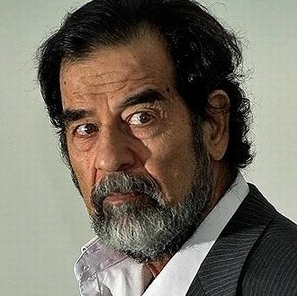 The Law of Unintended Consequences.
The Law of Unintended Consequences.
Learn insight.
Years ago, the United States government aided and abetted Saddam Hussein in his war with Iran by supplying enormous amounts of military equipment and training. The intention, which hindsight now confirms to be ill-advised, was to stabilize the region and keep Iran at bay. It made sense at the time, having just come through the Iranian hostage crisis. Instead of gaining long-term stability, however, we created a tyrant that eventually drew us into Iraq to face the very weapons and military machine that we built and paid for in the first place. Moreover, we still had a hostile Iran to deal with, and, to make matters worse, the rabid regime of Mahmoud Ahmadinejad menaced the world with aspirations to become a nuclear power in the first decade of the twenty-first century. It was a classic example of the Law of Unintended Consequences.
The frustrating upshot of the Law of Unintended Consequences is that today’s solutions often become tomorrow’s problems. In 1968, for instance, the state of Vermont passed legislation forbidding billboards and large signs along the roadside in the interest of keeping Vermont beautiful. Not long afterward, large, bizarre “sculptures” began to appear adjacent to businesses. A Volkswagen dealership put up an obnoxious twelve-foot, sixteen-ton gorilla, clutching a real Volkswagen Beetle. The dealer kept the letter of the law but violated its spirit. (Rob Norton, Concise Encyclopedia of Economics.)
Short-sighted objectives lead us to come up with answers to immediate problems, without a second thought for the future. How many people, for example, ever intended to become a drug addict or an alcoholic at the outset of acquiring their habit? More than likely, they simply sought a quick, easy and accessible fix to a depressing situation.
But, doing something wrong represents only one side of the problem. The other side is undoing something right. In an age that tends to laugh at the methodologies of its elders, we see a huge shift towards tearing down, loosening up, moving out and doing in the traditions of the past. When you contemplate a change, remember that change, in and of itself, has a neutral value. Whether it turns out to be good or bad depends entirely on its coefficient. A wise piece of advice from one of my elders fits well here. “Before you tear a fence down, you’d better find out why it was put up in the first place.” It may have been built to keep something valuable inside; or to keep something destructive outside; or to supply a clear definition between the two. Educate yourself about all the variables in the equation before you make a radical decision.
Unintended need not be unforeseeable. Insightful projection and careful analysis of the possible consequences paint a reasonable picture of the future and at least will minimize the risk for great harm. The key here is not to permit your personal bias for an intensely desired outcome to cause you to overlook negative elements in the plan. A glaring example is the rush to marriage by many couples. If the prospective bride or groom have their hearts set on a wedding strongly enough, they will intentional avoid asking any questions that may threaten the relationship. I have been flabbergasted by the deliberate refusal of engaged persons to ask basic questions involving felonious activity, drug addiction, psychiatric treatment—even wife beating and child abuse. They were bent on getting married and were going to let nothing stop them. I will avoid a litany of stale jokes here, but you get my drift.
Ask yourself what the impact of each action will be, and then plan for it. A wise man once said, “A well asked question is half answered.”